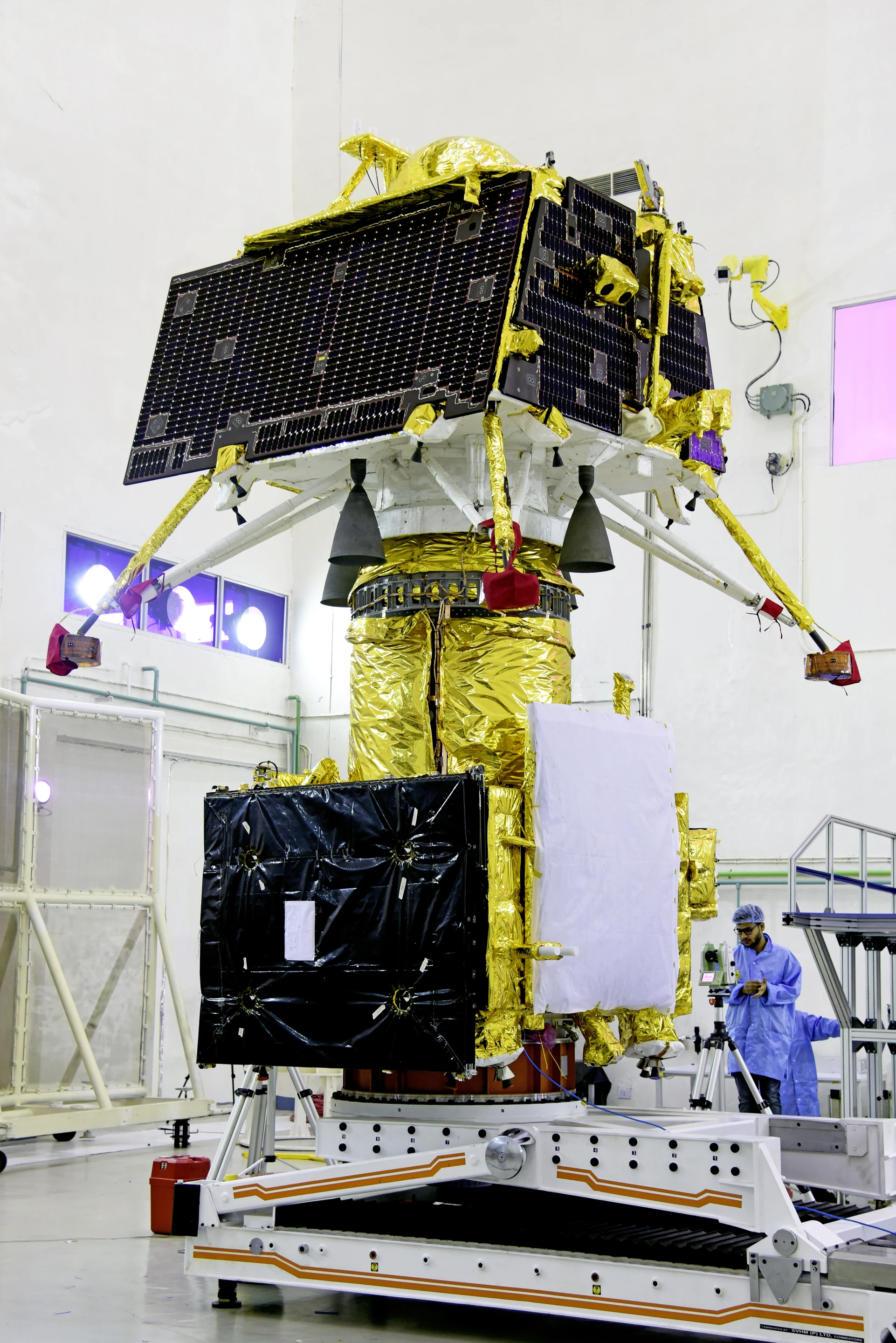All appeared on track for India's Chandrayaan-2 mission as the orbiter released its Vikram lander from orbit and began maneuvering itself toward the surface of the Moon on Saturday. But a sudden loss of radio contact derailed the country's plans to become just the fourth nation to land on the Moon and left mission control in the dark as to the lander's exact whereabouts. The team now appears to have pinpointed its location, with attempts underway to restore a connection.
As the successor to the Chandrayaan-1 mission that launched in 2008, the Chandrayaan-2 mission involves India's second lunar orbiter and its first attempt at landing on the Moon. After lifting off back in July, the spacecraft successfully slipped into lunar orbit in August as mission control prepared for a history-making descent.
The plan was to have the orbiter component of the spacecraft continue circling the Moon, studying its evolution and mapping its polar regions, while Vikram lander and the Pragyan rover inside it went in for a closer look. But mission control lost contact with Vikram when the lander was around 2 km (1.2 mi) from the surface, and were left uncertain as to what happened thereafter.

Speaking to the Press Trust of India, chairperson of the Indian Space Research Organisation K Sivan says the team has now located the lander on the Moon's surface, courtesy of thermal images snapped by the Chandrayaan-2 orbiter. "It must have been a hard-landing," he told the news agency.
Although they don't know for certain if the lander sustained damage from the impact, Sivan says the images confirm the Pragyan rover remains housed inside the lander, and that they are now making efforts to re-establish contact. According to The Times of India, Sivan says these attempts will continue for 14 days, though a positive outcome looks "less and less probable."
The solar-powered orbiter, meanwhile, remains in good health and is operating normally. It carries eight scientific instruments and is expected to spend seven years circling the Moon, gathering data on its chemical composition and the distribution of certain materials across the lunar surface.
Source: Press Trust of India, Times of India





